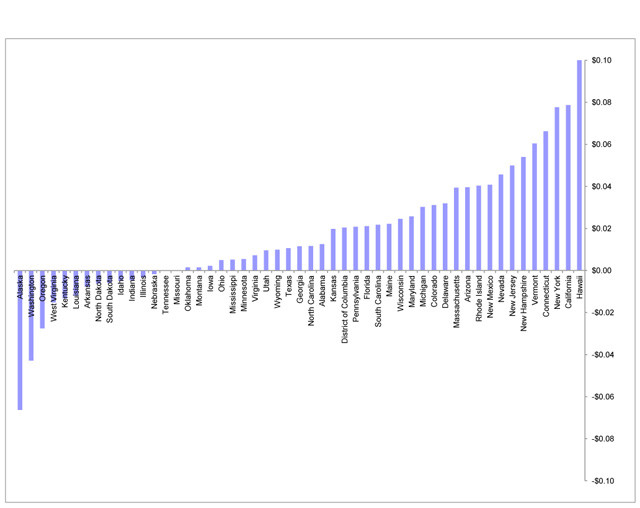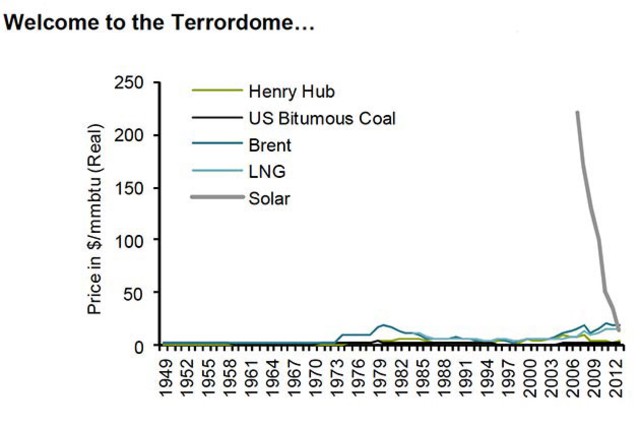Our interest in being reliant on fossil fuels for energy may be about to change. According to a Deutsche Bank report published last week, solar is on track to be as cheap or cheaper than average electricity bill prices in 47 U.S. states in 2016. While the report is assuming the U.S. maintains its 30 percent tax credit on system costs, this is incredible news.
It looks like the days where solar technologies were unconventional, expensive, and considered a luxury are coming to an end. Solar is becoming mainstream, and is not simply for the rich or for the tree huggers. Residents are more excited than ever that the prices are continuing to drop and the technology continues to improve.
The chart below shows how far solar could come out ahead in each state in 2016, assuming a worst-case scenario involving lowered tax credits. The blue bars show the anticipated cost of solar energy (assuming a conservative 20-year lifespan for the panels) minus average electricity prices. Positive numbers indicate the savings for every kilowatt hour of electricity.

Source: Deutsche Bank, EIA. Graph shows LCOE minus average electricity price
Their report also predicts solar installed capacity growth will increase as much as sixfold over the next three years in the states that have already achieved grid parity. Solar is a technology that is renewable in comparison to a fuel. Earth has a limited supply of fuels while solar is plentiful and renewable. As solar technology continues to increase in efficiency and lower in production costs, prices will continue to trend downward. The chart below displays specific prices for energy sources over time. To the far right the dramatic decrease in the price of solar is obvious, and soon the price will be below tradition fossil fuels.
Source: EIA, CIA, World Bank, Bernstein analysis
As trends continue, the potential to find more solar applications will continue to flourish. Imagine being able to install solar technologies in regions where it was never feasible to construct a coal power plant before. Plus, our power bills are about to change forever.









Comments are closed.